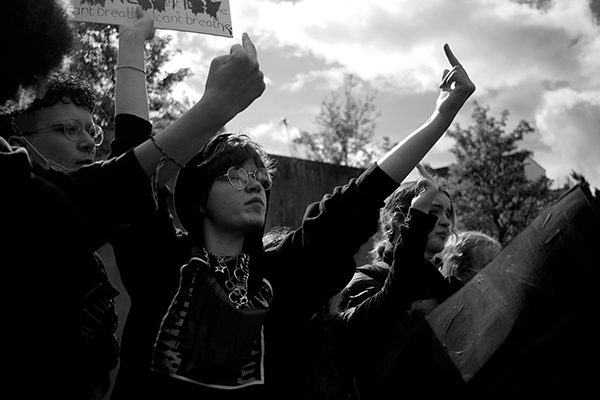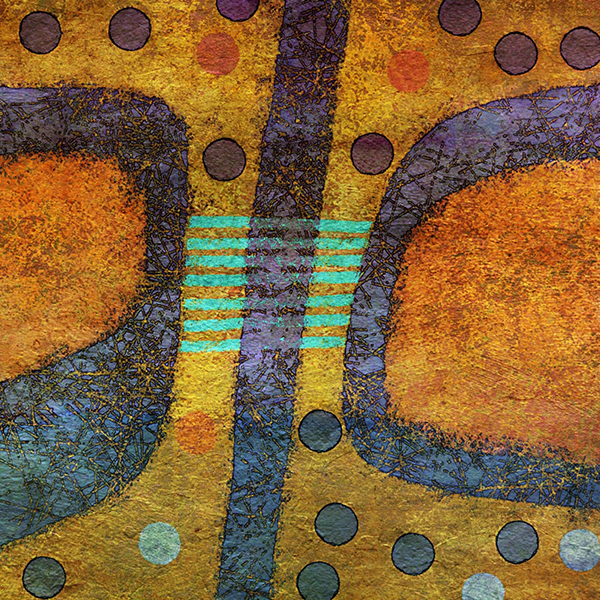by Arthur Paul Patterson
EVERYBODY LOVES TO see justice done on somebody else.
Justice has become an off-putting term for me. I associate it with political correctness and link it to individual rights. Justice seems to me merely an ideological excuse for group or self-interest. I know this attitude of mine must be prejudiced since every moral perspective, including Aristotle and the Bible, places justice close to the starting point of its ethics. It's time that I take a more objective look at the virtue starting with the reasons for my bias against it.
The importance of justice has been limited in my life because of my partial understanding of its meaning. Initially I approach justice from its distributive aspect that asks the question, who gets what and is it fair? Placing the political before the personal aspect of justice permits me to avoid the source of my outlook on it. Paul Wadell calls the inter-personal aspect of justice commutative. This form of justice asks the question, how have I been treated personally? It places justice in the context of relationship, authenticity, and respect for one another. Interpersonal honesty and truth-telling have been touchy subjects for me since my family relationships were not exactly straightforward but filled with anxiety and duplicity.
Not wanting to confront my past and its effect on my understanding of justice led me to depersonalize justice. As a teenager, I concluded that the structures that determine our lives are fundamentally unfair, stacked against us, all of us -- regardless of wealth, race, or any other category. The enemy is the System or the Man, to use a sixties' cliché. I am formed by forces beyond myself, forces whose motives or agendas I never trusted. Consequently my search for justice involved considering alternative systems that seemed, at least theoretically, more just. Talk of a just society and a bohemian rebellion was in the air; we were set to demolish what was there before we carefully imagined what ought to be put in its place.
Seeking justice in this manner definitely didn't start with interpersonal virtues or developing habits of truth-telling or justice between individuals. While seeking justice we used and abused the system. Lying or stealing from the Man was a virtue, a way to bring about justice. I distinctly remember browsing in a bookstore and coming across Abby Hoffman's book with its title Steal this Book! The main theme involved how to live off the system while contributing nothing to it. Not exactly a prescription for reciprocity!
My political or distributive approach to injustice indulged my anger, rage and desire for vengeance. It had little to do with true justice or reconciliation nor did it address the wellspring from which my misunderstanding of it had come. Why was I so angry and disillusioned? I always had my physical needs met. I was not a victim of distributive injustice. A hilarious contradiction of thinking myself a victim was once illustrated poignantly when a Free Press photographer caught an image of me protesting in front of the Salisbury House. I was carrying a sign that read, "We need to eat too!" The caption read "Hippies Denied Service." I was wearing an expensive rawhide jacket and weighed over 250 pounds. Yet somehow during that time I felt injustice had been done to me.
Living in a dysfunctional family with its hidden agendas, I rarely heard the truth, the straight goods; I learned not to trust. Starting at home and moving out toward friends, school and other institutions, I braced myself against lies, hypocrisy, and unconscious motives. My fears were regularly confirmed. A habitual pattern of personal paranoia became consolidated. That is not to say that just because I became paranoid I was wrong about what I experienced, only that I rarely saw the exceptions to injustice in people and even social contexts.
Photo by Taylor Temple
I had blinkers on when it came to authentic expressions of justice. I rarely recognized that I had a responsibility to act differently. To be a truth-teller, a person who advocated fairness for others. I may have appeared more sensitive to how injustice effected people but my concern was not as principled as it may have looked. When I saw injustice I was enraged at the sources of the injustice far more than I had developed genuine empathy for those being treated unfairly. I was so busy reforming the system and raising consciousness that I rarely attempted to help the victims. My so-called "justice response" was selfish insofar as identifying with the excluded and downtrodden allowed me an excuse to seek revenge for how I felt that I had been treated. Ironically my justice sense led to injustice and prejudice. I became unjust because I didn't appreciate how all human beings are effected by the world they live in. The roots of Scriptural justice assume that all people live in sinful solidarity with one another and need restoration:
At that time you were without Christ. You were aliens rather than citizens of Israel, and strangers to the covenants of God’s promise. In this world you had no hope and no God. (Ephesians 2:12 CEB).
To be truly just I needed to hear a more inclusive version of justice --a justice for all that embraces the oppressor, the rich and powerful, including 'the Man' and those caught in unhealthy systems. Wealthy people suffer because they personalize "things" and “thingify” people. They suffer relationally and are rarely at peace. They need to be restored, reconciled and made just. The powerful are addicted to control; as a result they rarely experience being cared for or learn how to trust others. Missing these nuances of justice, I became unjust myself because I did not expand either my compassion or my responsibility.
I realize that I do not stand alone in my skewed starting place for understanding justice. Many like myself need to be restored before we can seek and practice justice. Hating, exploiting and dismissing one another is the result of being hurt or threatened by one another; often the most hurt or fearful do the most damage. When viewing social settings of injustice such as the youth counterculture, racial and gender groups, I detect the same personal rage and lack of a comprehensive embrace that justice on a principled level, or even better on a biblical level, offers.
Contrary to Bruce Cockburn's advice to pick up a rocket launcher (or baseball bat), I have learned that inclusive compassion and the gospel of peace is a more effective "weapon". The spirit of Christ digs deeper than any ideology or human rationale because our personal suffering transforms into empathy instead of revenge and makes friends of enemies.
For he is our peace; in his flesh he has made both groups into one and has broken down the dividing wall, that is, the hostility between us. He has abolished the law with its commandments and ordinances, that he might create in himself one new humanity in place of the two, thus making peace. So he came and proclaimed peace to you who were far off and peace to those who were near (Ephesians 2:14– 15, 17 NRSV).

When this transformation takes place community emerges, a community of persons and a community of goods. Our relationship to material things changes and we distribute what we have with little fear that we will have to do without. Love becomes abundant, all are cared for. All this, without rules; all this, under no compulsion. As the Scripture says, "Now this Lord is the Spirit and where the Spirit of the Lord is, there is freedom" (2 Corinthians 3:17 NJB).
The fullness of this revolutionary justice, the Kingdom of God, has not arrived-- it likely never will in what we call history --but it does exert its pressure on our present experience. Living from this transforming story does makes a difference here and now and can ubiquitously flow through all our social contexts substantiating a comprehensive justice: interpersonal, structural and political.

Living justly requires that we begin with commutative justice. Telling the truth and playing fair. Telling the truth means more than just sincerity; it implies desiring the truth. The only way that truth can be told is when we open ourselves to revelation and guidance. If I want to harm others less than I do, I must be dedicated to seeking truth with them, the truth beyond my personal investments or defenses. A truth that I have learned to trust because it is not only genuine but loving and for the good of all.
So from now on, there must be no more lies. Speak the truth to one another, since we are all parts of one another. and do not lie to each other. You have stripped off your old behaviour with your old self (Ephesians 4:25; Colossians 3:9 NJB).
When a community lives toward justice, we are covenanted to guard one another's worth, our protection is then a corporate thing, as is the reality that each will have their physical needs met. Replicating this scriptural dynamic is the only way justice can flow down as the prophets foretell. "But let justice roll down like waters, and righteousness like an ever-flowing stream."(Amos 5:24 RSV).
What these seers have done is to supply us with a prophetic imagination for a just world. We can add our improvisations, our contextualizations but the main plot is in place.
Conscientization, that hard word to pronounce and even more difficult to practice, requires a softening of our hearts to the truth of God, to our obligations to one another and to our need for forgiveness when we have allowed our pain and fear to result in injustice in our world. I mentioned that hesitation or an avoidance of a topic is often a cue there is something personally relevant to be listened to -- for me it was.

Image by Jonny Gios
